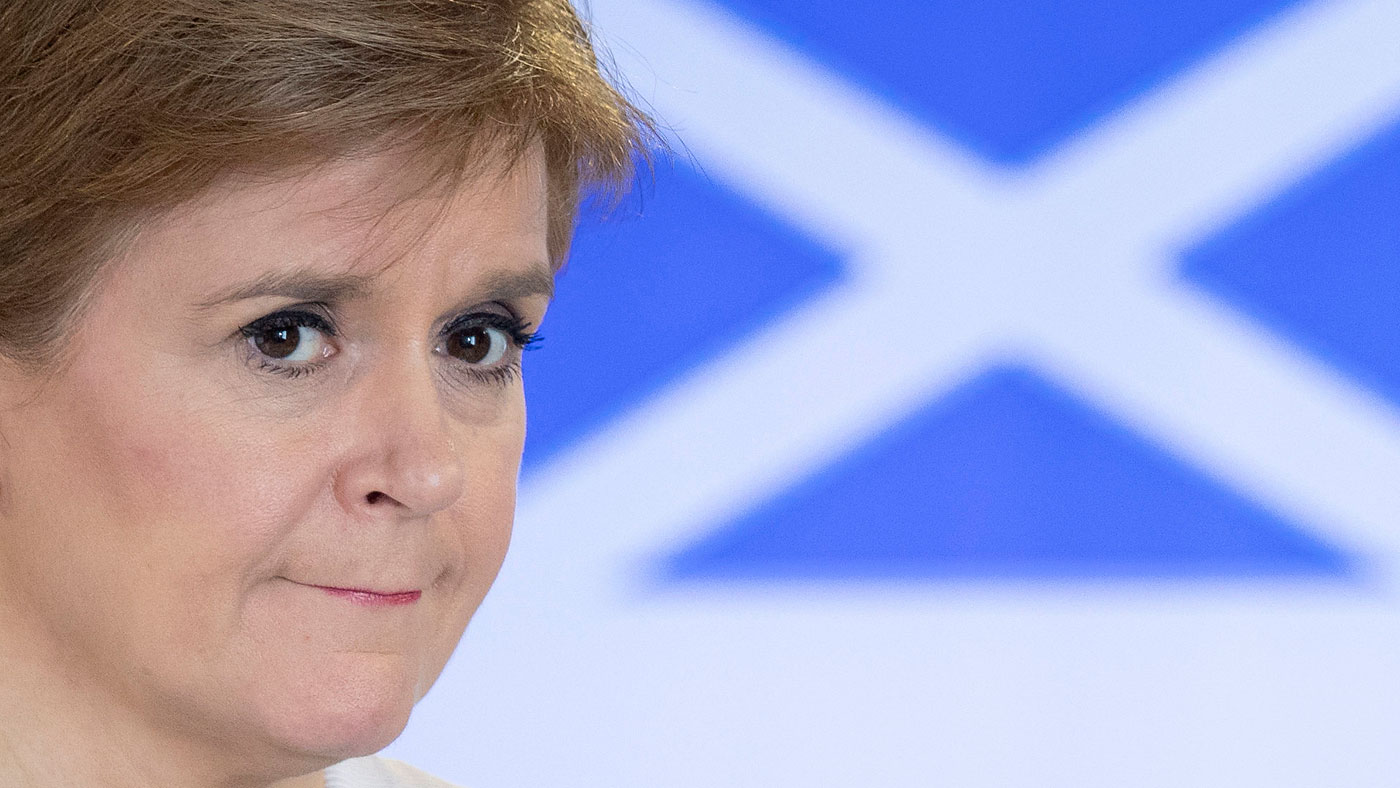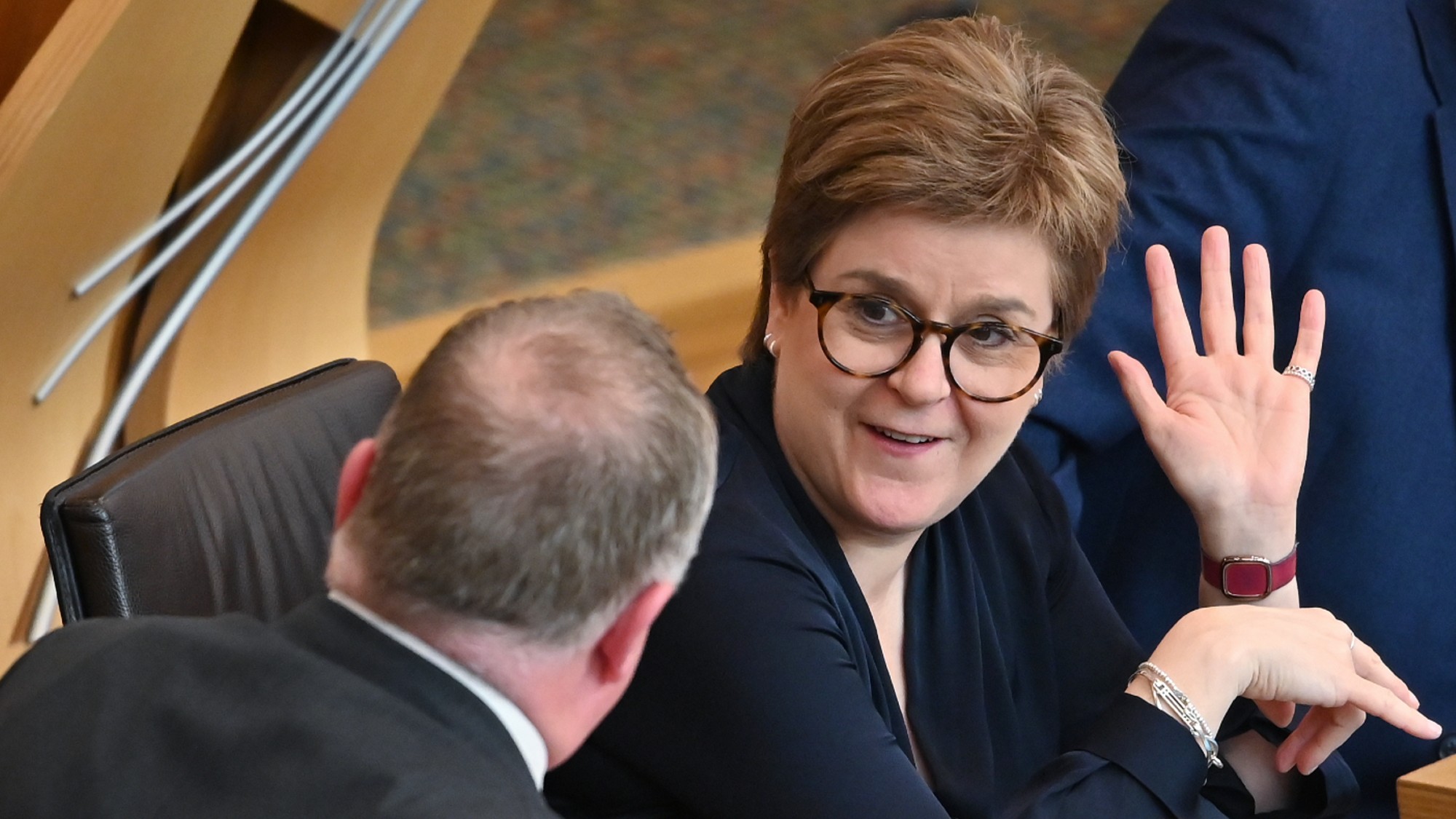How coronavirus could break up the UK
Leading SNP politicians are pushing to accelerate their campaign for Scottish independence

A free daily email with the biggest news stories of the day – and the best features from TheWeek.com
You are now subscribed
Your newsletter sign-up was successful
The British response to the Covid-19 pandemic has given the Scottish National Party a powerful new argument for independence, according to some of its most prominent MPs.
“They are formulating policies with a view to unveiling a prospectus once the coronavirus outbreak has abated,” The Times reports.
Among the group is Joanna Cherry, considered a front runner to succeed Nicola Sturgeon as SNP leader. “I do think the incompetent handling of Brexit and the Covid crisis by Westminster builds the case for independence,” she told the newspaper, adding that “many more people” would now question “the UK as a stable and competent entity” than was the case in 2014, when Scotland voted to remain in the UK.
The Week
Escape your echo chamber. Get the facts behind the news, plus analysis from multiple perspectives.

Sign up for The Week's Free Newsletters
From our morning news briefing to a weekly Good News Newsletter, get the best of The Week delivered directly to your inbox.
From our morning news briefing to a weekly Good News Newsletter, get the best of The Week delivered directly to your inbox.
Sturgeon has called for a second vote on independence - a demand rejected by Boris Johnson - but some in her party believe she should be making the case more strongly.
Even before the outbreak had reached crisis point, back in February, SNP MP Angus MacNeil “said ‘all options’ for securing independence should be on the table, including claiming a mandate through victory in next year’s Scottish elections”, as The Independent reported at the time.
“The post-coronavirus era promises to be a good time for the party, as it does for radicals everywhere,” says Chris Deering in the New Statesman. “A world waits to be remade. Sacred cows are for the broth pot. The fusty are at bay. It is a rare chance to try new things.”
Sturgeon herself has suggested that Scotland should spend the lockdown contemplating “a new way of doing things” - although she has avoided explicit mention of independence.
A free daily email with the biggest news stories of the day – and the best features from TheWeek.com
“As we make that journey [back to normality], difficult and challenging as it will be, we can also start to talk about our destination,”she wrote in The Sunday Herald last month. “We can start to think together, and work together, to decide the kind of Scotland we want to emerge from this crisis.”
According to The Times, that process has already begun in earnest. The newspaper says the SNP’s policy chief, Alyn Smith, has contacted 30 local party branches “to discuss plans including how a universal basic income would work in an independent Scotland”.
Smith denied that he was “politicking or taking advantage” of the health crisis. The party was simply debating policy “as an energising prospect for how an independent Scotland would look different”, he said.
Some nationalist commentators think the SNP should go further. Its leaders “seem embarrassed by the notion of independence”, but they should look to the example of Dominic Cummings and his determination to push through Brexit, says Kevin McKenna in The National.
–––––––––––––––––––––––––––––––For a round-up of the most important stories from around the world - and a concise, refreshing and balanced take on the news - try The Week magazine. Start your trial subscription today–––––––––––––––––––––––––––––––
“I wish the SNP had someone like him to preserve the integrity of their own project,” McKenna continues. “The party needs an official nasty bastard like him who’ll cut to the chase and get to what’s real… And don’t give me any of that sanctimonious mince about us all needing to pull together to defeat the virus.”
But the New Statesman’s Deerin argues that while post-coronavirus voters may be open to new and radical ideas, they may also be tired of the ones they’ve heard before. “In a newborn era of uncertainty and risk, a return to the same old arguments about Scottish independence holds little appeal,” he argues.
This is especially true after experiencing such a crisis together, reliant on the same institutions and watching the same TV press conferences, Deerin adds. “The country, in short, is functioning as one, culturally, politically and economically, in a way that was perhaps thought lost for good.”
Indeed, says a National reader in a letter to the editor, “if Nicola Sturgeon returned to full-campaign mode for Scottish independence today, the fiercely critical outcry would engulf her to such an extent that her career would be over and Scottish independence would be set back decades”.
The strongest argument against independence may be financial, however. “The idea that Scotland would be richer alone, which the SNP pushed in the 2014 referendum, was undermined by the subsequent collapse in the oil price,” says The Economist.
Scottish voters were told “that the ‘likely average’ price of oil was $110 a barrel”, recalls The Scotsman. “In fact, it has not touched that level on a single day in six years.” For the past few weeks, it has rarely been above $30.
Many believe that with the cost of the coronavirus bailout growing and recession looming, now might not be the time to go it alone. “I don’t fancy making the case for taking on the costs of independence while the country’s struggling,” an unnamed SNP MP told The Economist.
–––––––––––––––––––––––––––––––For a round-up of the most important stories from around the world - and a concise, refreshing and balanced take on the news - try The Week magazine. Start your trial subscription today–––––––––––––––––––––––––––––––
-
 Secured vs. unsecured loans: how do they differ and which is better?
Secured vs. unsecured loans: how do they differ and which is better?the explainer They are distinguished by the level of risk and the inclusion of collateral
-
 ‘States that set ambitious climate targets are already feeling the tension’
‘States that set ambitious climate targets are already feeling the tension’Instant Opinion Opinion, comment and editorials of the day
-
 Mixing up mixology: The year ahead in cocktail and bar trends
Mixing up mixology: The year ahead in cocktail and bar trendsthe week recommends It’s hojicha vs. matcha, plus a whole lot more
-
 How corrupt is the UK?
How corrupt is the UK?The Explainer Decline in standards ‘risks becoming a defining feature of our political culture’ as Britain falls to lowest ever score on global index
-
 The high street: Britain’s next political battleground?
The high street: Britain’s next political battleground?In the Spotlight Mass closure of shops and influx of organised crime are fuelling voter anger, and offer an opening for Reform UK
-
 Is a Reform-Tory pact becoming more likely?
Is a Reform-Tory pact becoming more likely?Today’s Big Question Nigel Farage’s party is ahead in the polls but still falls well short of a Commons majority, while Conservatives are still losing MPs to Reform
-
 Taking the low road: why the SNP is still standing strong
Taking the low road: why the SNP is still standing strongTalking Point Party is on track for a fifth consecutive victory in May’s Holyrood election, despite controversies and plummeting support
-
 Nicola Sturgeon's memoir: making the personal political
Nicola Sturgeon's memoir: making the personal politicalTalking Point Former Scottish first minister attempts to set record straight in 'Frankly' but does she leave more questions than answers?
-
 What difference will the 'historic' UK-Germany treaty make?
What difference will the 'historic' UK-Germany treaty make?Today's Big Question Europe's two biggest economies sign first treaty since WWII, underscoring 'triangle alliance' with France amid growing Russian threat and US distance
-
 Is the G7 still relevant?
Is the G7 still relevant?Talking Point Donald Trump's early departure cast a shadow over this week's meeting of the world's major democracies
-
 Angela Rayner: Labour's next leader?
Angela Rayner: Labour's next leader?Today's Big Question A leaked memo has sparked speculation that the deputy PM is positioning herself as the left-of-centre alternative to Keir Starmer